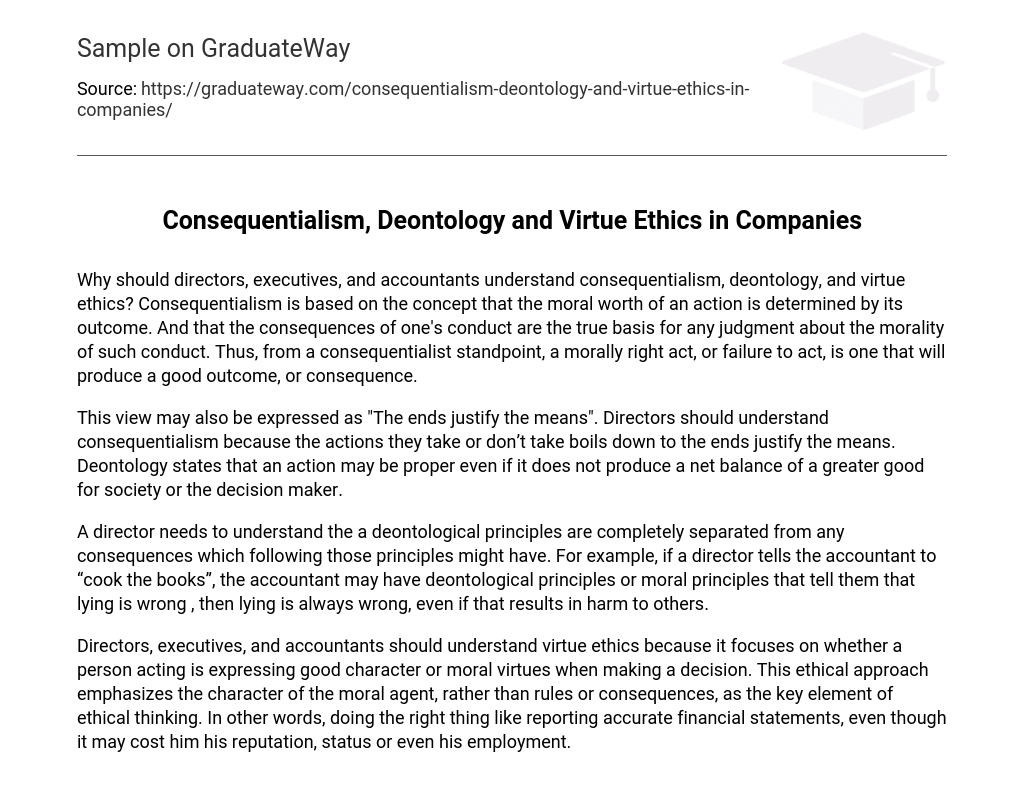Directors, executives, and accountants need to comprehend consequentialism, deontology, and virtue ethics. Consequentialism evaluates the moral worth of an action by its outcome, highlighting the role of consequences in determining morality. In line with this view, an act or decision is deemed morally right if it produces a favorable result.
This perspective, known as “The ends justify the means,” is crucial for directors to understand because their actions are dependent on whether the ends justify the means. Deontology maintains that an action can still be morally acceptable, even if it does not result in a greater benefit for society or the decision maker.
Directors need to recognize the difference between deontological principles and their outcomes. For instance, if a director tells an accountant to commit fraud by manipulating financial records (also known as “cooking the books”), the accountant may have moral principles that strictly forbid lying as inherently immoral. As a result, even though lying can cause harm, it is still considered ethically incorrect.
It is important for directors, executives, and accountants to understand virtue ethics in relation to evaluating a person’s decision-making based on their character or moral virtues. This ethical framework prioritizes the individual’s traits rather than rules or outcomes. In essence, it entails choosing the morally right course of action, such as producing accurate financial statements, even if it means sacrificing reputation, status, or employment.





